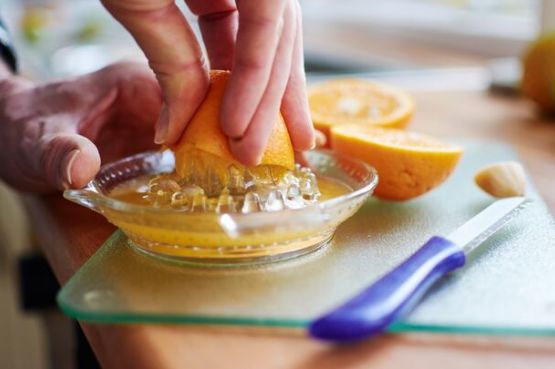Eat
Is going vegan good for you?
Reports suggest that during the pandemic, many people have made the move to plant-based eating. The UK’s vegan population is now at an estimated 2 to 3 per cent.
Here, I explain the health benefits of going vegan and explore any potential health risks. I also share lots of dietary tips to make sure you’re getting all the minerals and vitamins you need if you’re going vegan.

What does ‘being vegan’ mean?
A vegan is someone who doesn’t eat any animal products. So they don’t eat meat, fish, any dairy products, eggs or honey. They also avoid animal-derived products, such as gelatine or certain food supplements.
What are the health benefits of going vegan?
Vegan diets tend to include a lot more fruit and vegetables, which are rich in vitamins and minerals and high in fibre. Eating a variety of fruit and veg decreases your risk of diseases such as bowel cancer. Vegans also tend to eat more wholegrains, soy and nuts, all of which can help to protect your heart.
By avoiding foods that are high in saturated fat, such as red meat and cheese, a vegan diet can lower your cholesterol and blood pressure.
Vegan diets are often lower in calories because of the lack of meat and dairy products. This means a vegan diet can be a good way to lose weight if you’re overweight or obese. Being a healthy weight decreases your chances of diseases such as diabetes and heart disease.
Going vegan for the environment
Climate change is making a lot of people reassess how they live, travel and eat. Following a vegan diet, or at least eating mainly plant-based food, benefits the environment because it’s more sustainable.
Meat and dairy accounts for around 14.5 per cent of all man-made greenhouse gas emissions. Vegan and plant-based diets use less resources, such as land, water and energy, in comparison to meat-based diets.
Are there any health risks of going vegan?
Going vegan doesn’t automatically mean you have a healthy diet. You can be a vegan and still have chips, biscuits and alcohol every day! Use the Vegan Eatwell Guide (PDF 2MB) to help you get all the nutrients you need without animal products. This includes aiming for five portions of fruit and vegetables a day and balancing this with other important food groups.
A well-balanced vegan diet should give you the vitamins and minerals you need. But there can be a risk of nutritional deficiencies. If you’re going vegan, take extra care to plan and balance your diet. You may need to take nutritional supplements.
Below is some advice to make sure you’re hitting your daily intake of certain food groups and vitamins.
Protein
All of us need a variety of sources of protein in our diet to get the right mix of amino acids. These help to build and repair cells in our bodies. Meat and dairy products offer an easy way to achieve this – a vegan diet needs a bit more careful planning to get the balance right. Good sources of protein for vegans include:
- pulses and beans, such as lentils, chickpeas and kidney beans
- meat substitutes, like soya products, tofu and seitan
- nuts, including nut butter, and seeds
Omega-3 fatty acids
Omega-3 fats are essential for your health. They help lower your risk of heart disease, as well as playing a role in brain development and vision.
The richest source of omega-3 is oily fish, such as salmon and mackerel. If you don't eat fish, there are other foods you can get omega-3 from, including:
- walnuts
- flaxseeds (linseeds), chia seeds and hemp seeds
- oils such as rapeseed, hemp and flaxseed oil
You can also buy vegan omega-3 supplements made from algae.
Vitamin B12
Vitamin B12 is essential for good health. If you don’t get enough in your diet you can become fatigued, develop anaemia or suffer with nerve damage.
If you eat a vegan diet, your only reliable sources of vitamin B12 are fortified foods and supplements, such as:
- breakfast cereals
- yeast extracts
- soya yoghurts
- plant-based dairy alternatives
Always check the food label, as not all food products in the above groups are fortified with B12.
Calcium
Calcium is essential for healthy bones and teeth. Dairy foods are rich in this mineral, so if you’re going vegan, make sure you include fortified plant-based dairy alternatives. Other foods that contain calcium are:
- tempeh and calcium-set tofu
- dried fruit, such as figs
- nuts, such as almonds
- leafy green vegetables, such as kale
- sesame seeds
Iron
Iron is an essential mineral that your body needs to make red blood cells, which carry oxygen around your body. It also supports your immune system and helps your brain to function normally.
Vegans are at a higher risk of iron deficiency. This is because the form of iron in plant foods isn’t absorbed as easily as iron from animal sources, such as meat. This is especially true for premenopausal vegetarian and vegan women.
But the good news is, with some careful planning, you can get all the iron you need from a plant-based diet. Sources of iron include:
- dried fruits
- wholegrains
- nuts
- green leafy vegetables
- seeds
- peas
- beans and lentils
TOP TIP: increase your iron absorption by upping your intake of vitamin C. Rich sources include citrus fruits and strawberries.
Zinc
Zinc is essential for your immune system and plays an important role in growth and development. Like iron, zinc absorption from plant foods is lower than from animal sources, such as eggs. If you’re going vegan, be sure to include the following in your diet:
- wheat germ
- beans
- nuts, seeds
- mushrooms
- fortified breakfast cereals
Children and pregnant women need to take extra care when following a vegan diet. Dietitians can give more specific guidance in these situations.
Personal stories
Clare, 66, decided to make the move based on environmental concerns.
“I had been a vegetarian for three and a half years before I started to consider taking a further step to becoming vegan. As a vegetarian, I was aware of the damage meat production was doing to our planet. But I hadn’t considered how much the dairy industry was also part of the problem.
“As I did more research, it became clear that dairy was also a major contributor to the degradation of the planet. On top of that, for me, animal welfare is a big issue.
“My reasons are many – concern for the future of the planet, animal welfare, but also my own health. Since becoming vegan, I feel fitter and healthier. I am very happy that I’ve gone vegan: to try and make a small but hopefully significant difference.”
Jenny, 29, makes sure she gets enough iron in her diet by eating lots of dark leafy veg. She especially enjoys Asian and Indian vegan dishes.
“I became a vegetarian at the age of nine! I was very into animal welfare and still very much am. I turned vegan about three years ago. For me, it was a logical and easy next step to take. I make sure I eat enough iron and get the vitamins and minerals I need – lots of dark leafy veg and pulses.
“There are some brilliant meat alternatives now too, so it’s not hard to substitute. Some of my favourites are seitan and tempeh. But I also really enjoy meals that don’t have meat in them anyway – a lot of Asian and Indian dishes are completely vegan and really tasty.”
Brendan, 58, has felt ‘tremendous’ benefits from going vegan.
“I went vegan just over four years ago at the age of 54. No transition, straight from full-on carnivore to plant-based overnight, after watching a certain film on the suffering and welfare of animals.
“The benefits to me have been tremendous. I’m a cyclist and it has increased my energy levels, as well as reducing my bulk. It’s made me feel better all-round.
“Apart from the health benefits, the discovery of new foods and ingredients has been amazing. My taste has changed substantially – I feel that I can taste far more now than I did before. And it has led me to improve my cooking skills and try far more recipes than I could have dreamed of. Other areas that have improved are my concentration, memory and feeling more relaxed and at peace with the world.”
Are you interested in learning more about your health? Discover more about our range of health assessments.
-
Sources Sources
- Meet Britain’s vegans and vegetarians. YouGov. yougov.co.uk, published 20 January 2022
- Changing diets during the COVID-19 pandemic. The Vegan Society. www.vegansociety.com, published May 2021
- Healthy eating for vegetarians and vegans. British Nutrition Foundation. www.nutrition.org.uk, revised July 2018
- Plant-based diets. British Nutrition Foundation. www.nutrition.org.uk, last reviewed June 2019
- Vegetarian, vegan and plant-based diet: food fact sheet. The Association of UK Dietitians. www.bda.uk.com, published July 2021
- Lee J, Shin A, Oh JH et al. Colors of vegetables and fruits and the risks of colorectal cancer. World J Gastroenterol 2017; 23(14):2527–38. doi:10.3748/wjg.v23.i14.2527
- Guasch-Ferré M, Liu X, Malik VS et al. Nut consumption and risk of cardiovascular disease. J Am Coll Cardiol 2017; 70(20):2519–32. doi:10.1016/j.jacc.2017.09.035
- Aune D, Keum N, Giovannucci E et al. Whole grain consumption and risk of cardiovascular disease, cancer, and all cause and cause specific mortality: systematic review and dose-response meta-analysis of prospective studies BMJ. 2016; 353:i2716. doi:10.1136/bmj.i2716
- Medawar E, Huhn S, Villringer A, Veronica Witte A. The effects of plant-based diets on the body and the brain: a systematic review. Transl Psychiatry 2019; 9(1):226. doi:10.1038/s41398-019-0552-0
- Obesity. StatPearls [Internet]. www.ncbi.nlm.nih.gov, last updated 2021
- Key facts and findings. Food and Agriculture Organization of the United Nations. www.fao.org, accessed 26 January 2022
- Food security. The Vegan Society. www.vegansociety.com, accessed 26 January 2022
- Protein. British Nutrition Foundation. www.nutrition.org.uk, last reviewed June 2021
- Iron: food fact sheet. The Association of UK Dietitians. www.bda.uk.com, published July 2021
- Pawlak R, Berger J, Hines I. Iron status of vegetarian adults: a review of literature. Am J Lifestyle Med 2016; 12(6):486–98. doi:10.1177/1559827616682933
- Vegan Eatwell Guide. The Vegan Society. www.vegansociety.com, published 2020
About our health information
At Bupa we produce a wealth of free health information for you and your family. This is because we believe that trustworthy information is essential in helping you make better decisions about your health and wellbeing.
Our information has been awarded the PIF TICK for trustworthy health information. It also follows the principles of the The Information Standard.

More eat articles...
Did you find our advice helpful?
We’d love to hear what you think. Our short survey takes just a few minutes to complete and helps us to keep improving our healthy lifestyle articles.
Legal disclaimer
This information was published by Bupa's Health Content Team and is based on reputable sources of medical evidence. It has been reviewed by appropriate medical or clinical professionals and deemed accurate on the date of review. Photos are only for illustrative purposes and do not reflect every presentation of a condition.
Any information about a treatment or procedure is generic, and does not necessarily describe that treatment or procedure as delivered by Bupa or its associated providers.
The information contained on this page and in any third party websites referred to on this page is not intended nor implied to be a substitute for professional medical advice nor is it intended to be for medical diagnosis or treatment. Third party websites are not owned or controlled by Bupa and any individual may be able to access and post messages on them. Bupa is not responsible for the content or availability of these third party websites. We do not accept advertising on this page.



